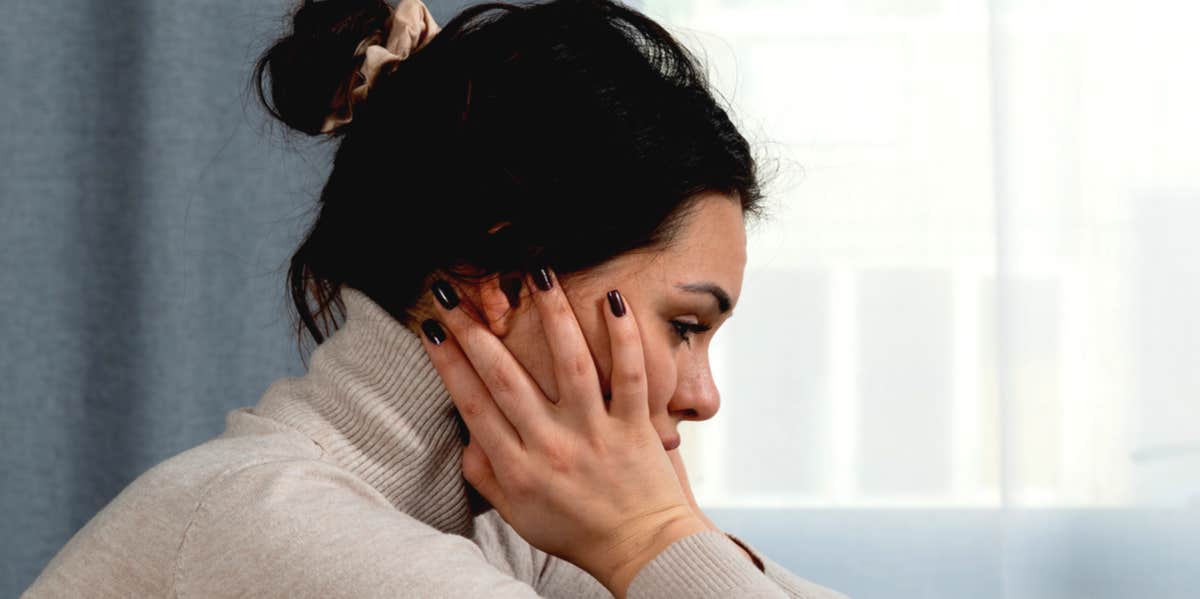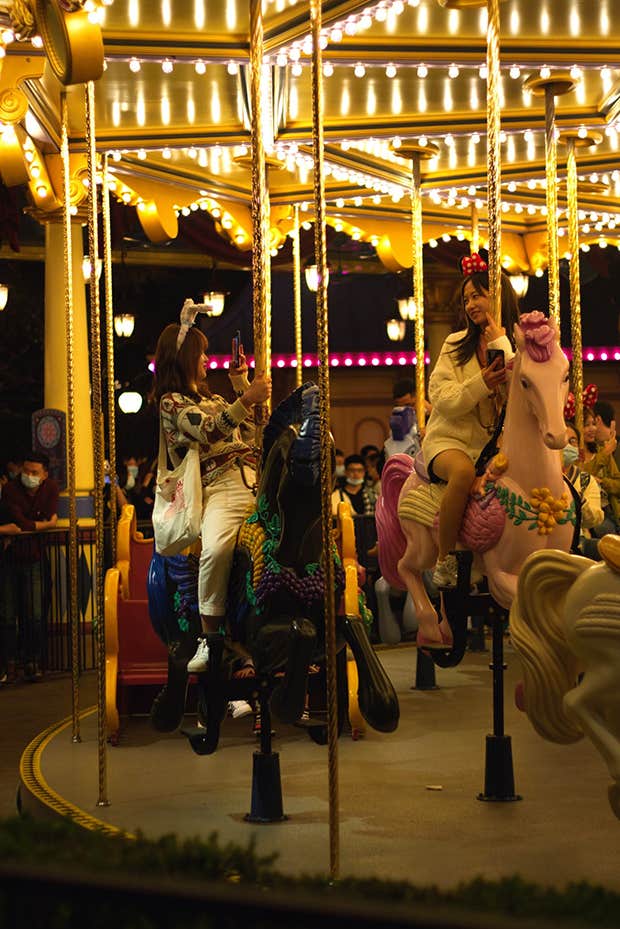Why My Friends Are All My Mother (And Why That Meant I Needed To Leave Them)
How imprinting can impact who we choose as our friends and how healing can break the cycle.
 Srdjan Randjelovic / Shutterstock
Srdjan Randjelovic / Shutterstock 
When I first saw this photo I thought I saw a mother and her small daughter on a merry-go-round.
On closer inspection, I realized the two might be sisters or friends. However, it made me wonder if we don’t often see our mothers, or our sisters, in our potential friends.
Like a holograph that shifts in the light, the image of our friend fluctuates from mother and then back to a friend, depending on the angle.
Since I have no sisters, I can only speak to the seeing of my mother in every friend I’ve ever had.
I’ve been on the same emotional merry-go-round with some version of her my entire life. I always thought that this was a result of "imprinting."
You might be familiar with the theory as it relates to romantic relationships. Psychologist and researcher, John Gottman, as cited in Psychology Today explains that, by the time we’re 18 months old, "we can become psychologically conditioned to being attracted to a distinct parental personality type, with the accompanying need for love.
This "imprinting" is the result of a combination of factors, including, perhaps most importantly, how we received (or were deprived of) love, intimacy, and security from our parent(s) or primary guardian."
As it turns out, the science says nothing about how this theory relates to our choice of friends.
My mother, I believe, is a psychopath. She may also have Munchausen Syndrome by Proxy. I was subjected to a wide variety of abuse from sexual to psychological. By day my mother wore the mask of the long-suffering Christian saint, tirelessly caring for sick and difficult children. Yet, by night she revealed her true face. She drugged me and carried out ritualistic sexual abuse.
I’d repressed those experiences until we hit Covid lockdown. With all that time to feel my feelings, I slid into a breakdown, unable to work or sustain relationships. Studies have shown that repressed memories of child sexual abuse make for much more intense feelings of fear than those who never forget their abuse.
I felt myself desperately grasping for an explanation, but finding only more questions. And the fear was crippling.
I found a good therapist and cut off contact with my mother. And I’ve been healing.
If progress reports were given for this sort of thing, I’d have given myself an A+, until a few days ago when I lobbed a hand grenade at a friend over text. I felt deeply disrespected and dismissed. Though my feelings were valid, my reaction may have been, extreme. I didn’t care. It felt good to explode. Now, however, the shame of it still lingers like the smell of smoke after a fire.
Nevertheless, I wonder if our friendship wasn’t always headed here. I’ve felt her greedily lap up heaping portions of time, energy, and money. She has a way of presenting a need only you can meet, then appearing utterly unable to do it herself, so you end up doing a lot more than you intended because you think you’re the only one who can.
And that, in a nutshell, might also describe my relationship with my mother.
To complicate my perception of all this, I was getting my period and I’m worried about money. I’d fronted my friend some funds, which she promised to pay back. However, when I asked for it, the tone in her voice changed from warmth to one of sharp disapproval. Out of my shame, I rose up and unleashed a self-righteous torrent that felt decades in the making.
Which of course it wasn’t. I’ve only known my friend for just over five years. But it’s left me wondering if I’ve always chosen people who reminded me of my mother.
And herein lies the rub, dear reader. If this is a result of “imprinting,” then good riddance.
But what if, instead, these conflicts I find myself in are really more like a Rorshach test, where, according to SimplyPsychology.org, "the mind works hard to impose meaning on the image — the entire sense of the pictures is generated solely by the mind. Therefore, by asking the test taker to describe what they see in the inkblot, they are genuinely telling you about themselves and how they project meaning onto the real world."
I didn’t grow up with a sound grasp of the real world. I thought my abuse was a recurring nightmare. My mother informed me that Satan was influencing my dreams because I’d sinned.
I buried those memories, as well as the ones that would follow, my entire life. And the feelings, the deep, profound feelings of violation, terror, and paranoia followed me, no, drove me into a state of fight or flight, all the time.
Yet healing is also about learning to trust my instincts. Maybe that friendship — even if only a pale reflection of my mother — needed to go. But that leaves me alone again, which is the cycle my mother created for me. And that doesn’t help me trust myself when choosing new friends.
And that’s the risk. Friendships are always a risk. The stakes may not feel as high as they do in romantic relationships, but that doesn’t mean we don’t need them.
I’ve often thought of myself as an island, a stalwart rock, holding fast in the middle of a raging storm. But what have I been holding fast to? Perhaps the idea that one day the waters will calm and I’ll reach out and find that I’m not an island, but a peninsula connected to something.
Even if the model of love that I received is broken, I know enough to know that I deserve something better. And isn’t healing about rebuilding our shattered paradigms of self and the world around us?
Today I realized we can get off this merry-go-round of our imprinting. It starts with honesty and seeking those who love the newfound honesty within us.
Hey, look at that, I may be getting an A+ in healing after all.
Amy Punt is an essayist and opera librettist, playwright, and educator.
